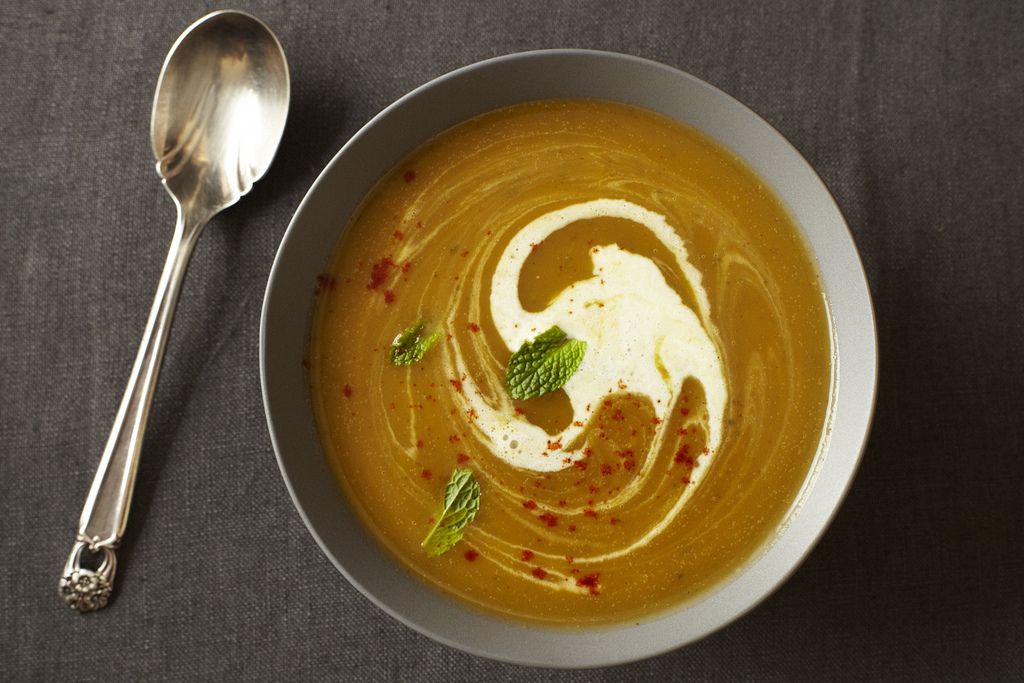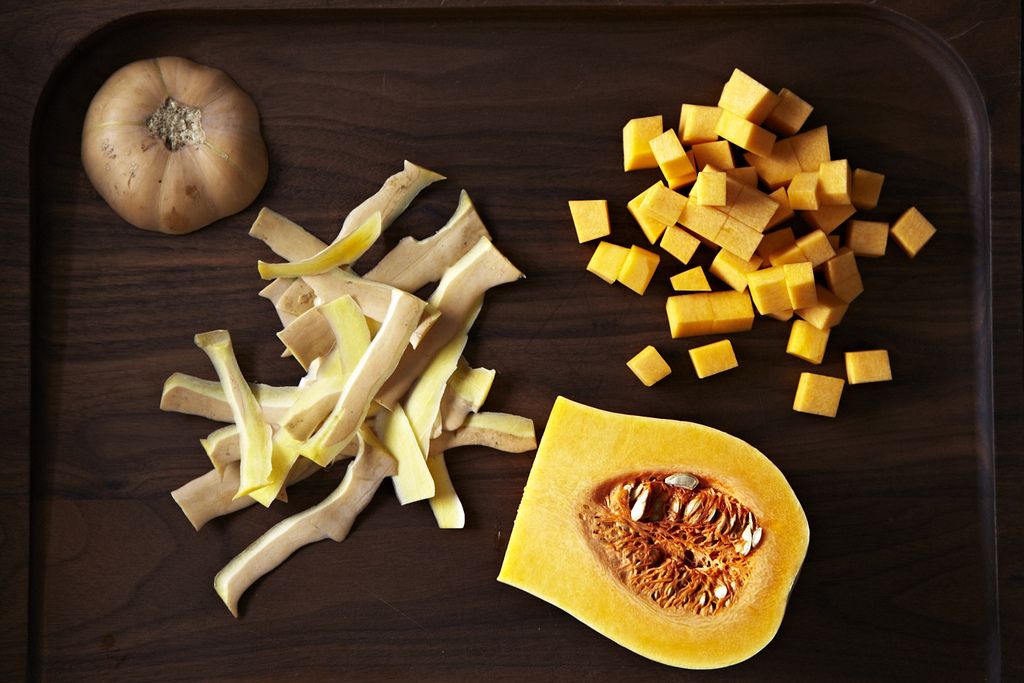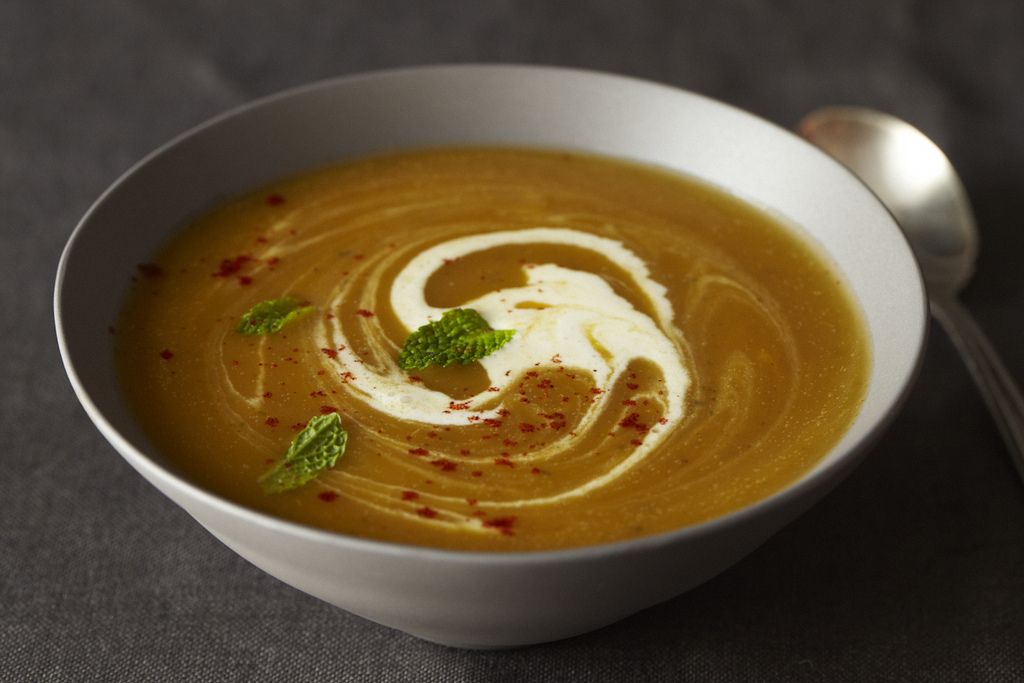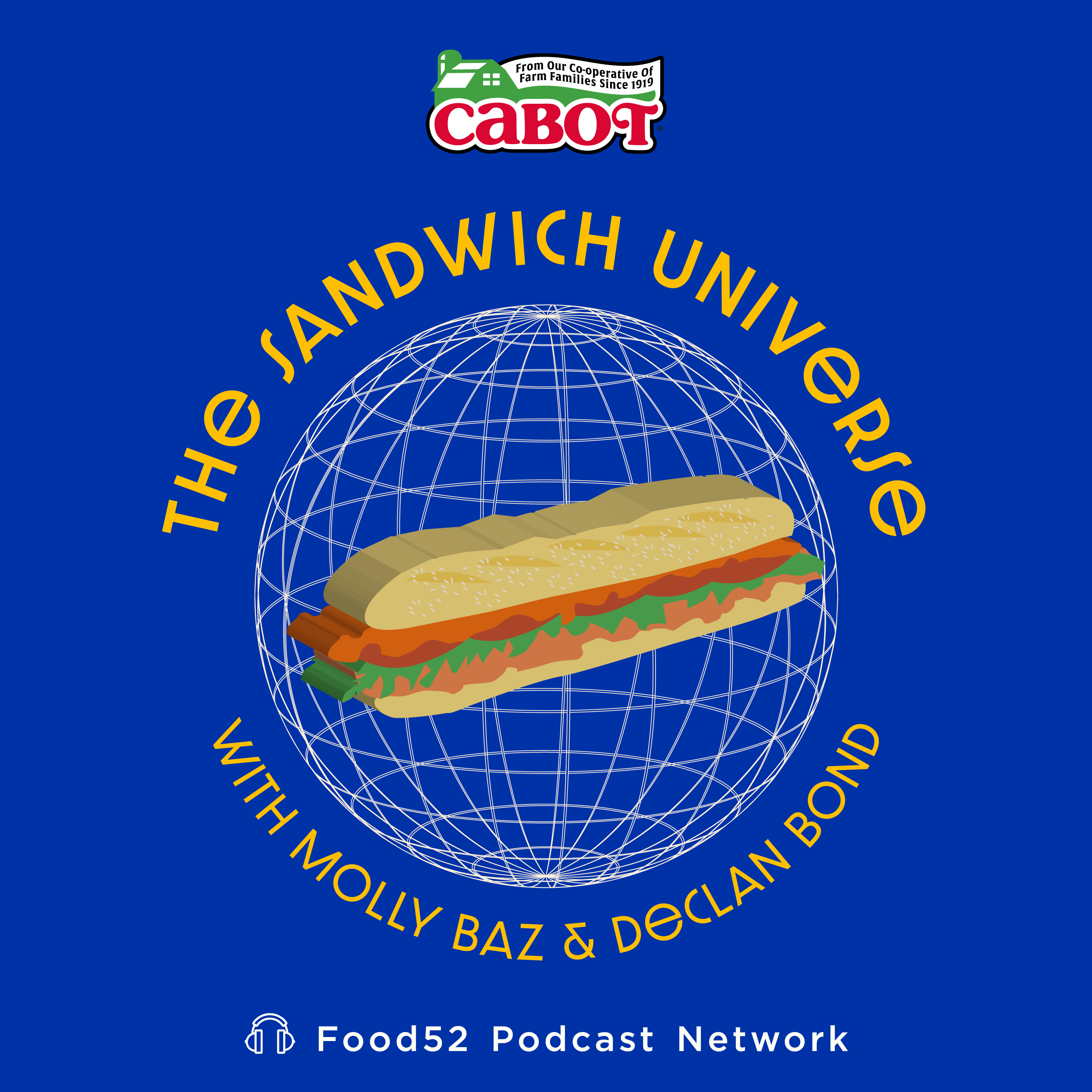Every other Thursday, we bring you Nicholas Day -- on cooking for children, and with children, and despite children. Also, occasionally, on top of.
This week: Nicholas tells a Cinderella story -- the ugliest squash in the pumpkin patch may be the best one of them all.

A few weeks ago, we -- me, my wife, and a couple of raggedy kids we picked up in the living room -- went apple-picking at an orchard that also grows a wondrous array of pumpkins. These were bizarrely shaped and shaded varieties, tricked-out carriages for a future Baz Luhrmann production of Cinderella. Hidden among them was a small pile of suspiciously ordinary heirlooms; these looked like they’d survived on taste, not looks. Their sign read: Judged the best pumpkin for pie in a blind taste-test!
It was only later that I thought to ask about the identity of the other competitors.
More: Squash isn't the only orange veg your kids will love. Try carrots, 6 ways.
Michael Lewis has said that parenthood makes you into a wimp. It also makes you into a sucker. Before children, I never would have bought a pie pumpkin. I know that canned pumpkin comes from butternut squash; I know that pie pumpkin is a class-action lawsuit in the making. (Have you tried to make pie from a pie pumpkin? Call now!) After children, I thought: Why yes! Pie from an actual pumpkin! On such an archetypal autumn day, what else would a person do? And what a helpful sign to suggest doing so!
We roasted it the next day for pie. It tasted like water, but with more texture.
We had banana ice cream for dessert.

This was a teachable moment, I thought. On the other hand, I have a bad habit of identifying teachable moments that aren’t actually teachable moments.
Halloween, I told Isaiah over banana ice cream, is actually a holiday about the complexities of plant breeding. People have managed to breed beautifully orange pumpkins that are perfect for carving. But they haven’t managed to breed beautifully orange pumpkins that are perfect for carving and taste good. Making plants taste good is really hard!
But squash that doesn’t look like a Halloween pumpkin does taste really good, I went on. We should make pie with that!
Isaiah agreed. At least I think he agreed. I’m not sure he was paying complete attention.
But I am sure he thinks squash tastes really good. (The distinction between pumpkins and squash isn’t botanically meaningful.) There were slices of roasted Buttercup at dinner the other day and he called it “orange butter” and said things like, “Dada, I am surprised you are letting me eat just butter for dinner!” And he was right: the Buttercup did taste a little like orange butter. The week before we’d had slices of roasted Red Kuri, which tasted a little like chestnut butter. There’s been an explosion in the availability of winter squash varieties, and they are almost all wonderful, even when they don’t taste like butter. Deborah Madison, in her extremely useful Vegetable Literacy, has a cheat sheet of the dozen-plus varieties you are most likely to see. But her recipe for winter squash soup with mint and red chile -- see below -- will be warming and autumnal and remorse-free with any of these varieties, all of which do not taste like water but with more texture.

Somewhat quixotically, and in a transparent attempt to ruin Halloween for my children forever, I then wondered: With such a wealth of heirloom squash, forget not just making pie out of Halloween pumpkins. Why even carve Halloween pumpkins? Is it too much to ask that the plant we carve on Halloween we can also eat?
Well, maybe.
You see, I really wanted to carve a Blue Hubbard squash. Have you seen a Blue Hubbard? It is the squash that ate Des Moines. It would make a terrifying stoop decoration and a fine pumpkin pie. (A fine pumpkin pies, actually. It’s that big.)
Unfortunately, the Blue Hubbard was bred for storage, and it is built like a fortress. The most common way to open a Blue Hubbard is to drop it. Sometimes several times. Sometimes from the top of the basement stairs. This suggests that trying to carve a Blue Hubbard would be a deeply flawed idea, the flaws of which you would have time to enumerate while sitting in the emergency room.
But quixotic parental enthusiasms, as any child knows, do not fade easily. If you have carved and eaten any winter squash, and you also have the fine motor control of someone who carries band-aids around in his wallet, I want to know about it. I still have a week.
Winter Squash Soup with (Less) Red Chile and Mint
Lightly adapted from Deborah Madison's Vegetable Literacy (Ten Speed Press, 2013)
Serves 4 to 6
2 pounds or more of winter squash
2 tablespoons olive oil
1 onion, chopped
2 tablespoons basil, chopped
1 tablespoon mint, chopped
One 3-inch cinnamon stick
½ teaspoon red chile powder
4 cups vegetable or chicken stock, or water
12 coriander seeds, 12 black peppercorns, and 4 whole cloves, all tied in a cheesecloth sachet
2 tablespoons heavy cream
Handful of sliced mint for garnish
See the full recipe (and save and print it) here.
Photos by Ryan Dausch





See what other Food52 readers are saying.